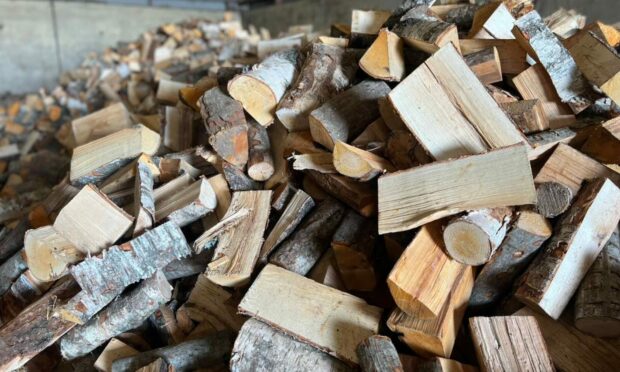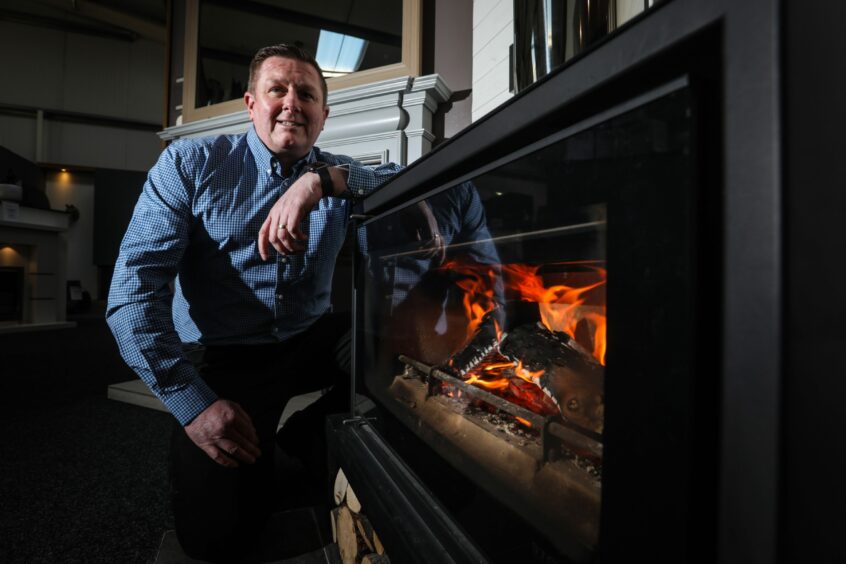A Fife supplier has warned some firewood supplies could be ‘finished by Christmas’ amid an unprecedented demand for wood burning stoves.
The prospect of soaring gas and electricity bills has resulted in suppliers of wood burners and kiln-dried logs being ‘inundated’ with business.
Laura Anderson owns Kingdom Firewood in Kingskettle.
“We’ve been busier over the summer than we usually are at Christmas time.”
Not expecting many customers during the long, hot days, she says she “didn’t have any staff to cover the work”.
She adds: “Usually we don’t need staff until September/October”.
Why could hardwood run out?
Hardwood burned in domestic heating stoves includes ash, oak and birch.
Laura says it is what stove suppliers recommend.
“Pretty much all of the stove installers tell customers they can only use kiln dried hardwood.
“But hardwood is not a sustainable product in the UK. It will run out.
“All of our suppliers are anticipating it will be finished by Christmas.”
She says imports of hardwood have dried up because of the Ukraine crisis.
“That means that the companies that usually buy the imported hardwood are fighting for the local supplies as well.
“It means the price has gone up.
“It also means that the small stock we have in the UK is massively running out.”
Laura says larch softwood is a good alternative to hardwood logs.
“Larch doesn’t have quite as much resin in it.”
Larch is grown in Scotland and Laura says it is a more sustainable option for burning in closed stoves.
Stove retailer ‘inundated’
Meanwhile, Gary Turnbull who runs Fire Surround Centres in Dundee has seen demand for wood burning stoves more than double.
“We have been inundated with stove inquiries.
“I’ve never seen it this busy.”
The company also sells gas and electric fires.
But at the moment customers are mainly asking about wood burners.
“Normally, in June, July, August time, we’re very quiet.
“It’s quite seasonal, going back before Covid-times.
“Over summertime, nobody thinks about their stove. They’re on holiday, or whatever else.”
Uncertainty over fuel bills
Gary says there is no doubt people are concerned about the uncertainty facing gas and electricity costs.
Customers are looking to “future-proof” their homes.
Meanwhile, he says staff advise customers on what they can and cannot burn in their stoves.
“We recommend going to a proper log supplier.
“There’s no point buying a nice car and putting in rubbish.”
Gary says “wet wood”, which has a moisture content of more than 20%, is the worst thing to burn.
In addition to releasing more harmful emissions, it also wrecks your stove.
“The stove doesn’t burn properly, the glass goes all black, you get a build up of creosotes within the chimney itself.
“You don’t burn anything that’s treated. No MDF, no chipboard, nothing that has resin through it.”
Wood burners must now meet new standards aimed at minimising emissions of harmful particles linked to respiratory diseases and cancers.
However, even the most up to date models still emit more pollutants than burning domestic gas.













Conversation